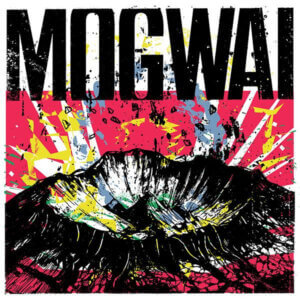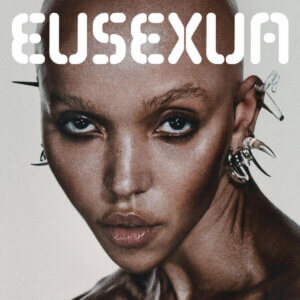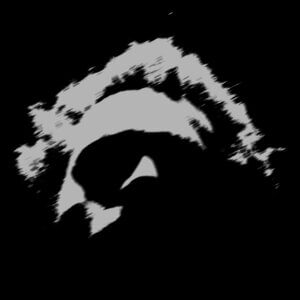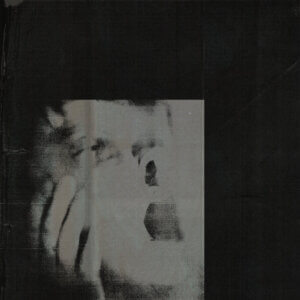Sarah Kinsley Is Creating Her Own Path

Sarah Kinsley opens up about the personal journey behind her latest record. Sharing her experience collaborating with one of her musical heroes, John Congleton (Alvvays, St. Vincent, sharon Van Etten). She reflects on her unique blend of classical training and pop passion, the impact of her multicultural upbringing. Sarah’s candid insights reveal a deep connection to her music and a desire to stay true to herself in an ever-evolving industry.
Northern Transmissions: One of the first things that I wanted to learn about you was what motivates and influences your art.
SK: I feel very motivated to write from personal experience, like it’s very hard for me to write just about anything. I feel like I need to feel inspired by something or have something very particular that I want to say in order to write. But being around people is really what inspires me, even if it’s like people watching or seeing people in my life, like having conversation is always like a very wonderful piece of inspiration for me.
NT: Have you always been motivated to write that way? Or do you feel that process has only developed overtime?
SK: I think so. I mean, I think songwriting for me has always been a very expressive and very vulnerable thing about experiences. So I never felt like I didn’t have the option to do that. I feel like growing up, I loved journaling and loved writing in general, even before songwriting. I’ve never felt stifled in any way or like I don’t have an outlet. If that makes sense.
NT: Yeah, absolutely. Were you pairing journaling with the instruments you’re classically trained in from an early age or were they always two separate forms? Did you start to bring them together over time?
SK: Yeah, they were totally separate from me for, like, many years. Because I was playing piano and violin for as long as I can remember, and it was such a specific discipline of being in classical music. I did not associate that with songwriting for a long time, just because the worlds are so different, classical music and pop. But I think subconsciously, a lot of the elements were the same for me without even realizing just because music and musical training subconsciously shifts how you think without you knowing. And I definitely was influenced by the classical side without knowing, or, you know, any of the theory training I’d had. But I feel like it wasn’t until college that I was really like tangibly starting to experience putting the two genres together.
NT: Was there any sort of an outside influence on that? Or was it just how things merged together overtime?
SK: I think it was totally natural, the only external forces I ever felt were like my parents who pushed me to play classical music, and I thankfully ended up liking it. Which is a pretty common thing, I would say for a lot of young Chinese Americans or people who had parents who immigrated to the US. But I never felt forced to, like bring that side of me into my music. It just felt like it had been a part of me for so long that to go without it would be so unnatural and so unlike me in a way.
NT: How do you think growing up for a large portion of your formative life in Singapore influenced you over time?
SK: It’s strange because I spent around like five or six years there. And that was between the ages of like 10 and 15, which I feel like are such instrumental years as we’re growing up. I was super influenced by American radio and American top 200 pop hits. But at the same time, I was being engaged with, like, a level of musical training that is so different. In Singapore, there’s really way more emphasis on discipline in academics and specifically with music. It’s so much more intense than any of the lessons I’d ever done before or teachers I’d ever had. So I feel like it affected my mindset in a lot of ways.
Where a lot of what I was told during that age was that I was way too emotional as a musician.There’s a sort of binary of, like, you’re either a really skilled, technical player, or you’re a bit too emotional. And I was always veering on the side of being way too emotional. And I feel like I really internalized that in a way. I felt like I needed to be more disciplined, but I also just hated the discipline of it, like I just enjoyed playing. So I feel like there was this weird cycle that was happening when I was there, where I was being told I needed to push more into this thing, and yet it was kind of like I was already out the door. Where I was not as interested in that music anymore, and I was falling in love with popstars and pop music. But it felt so far away, like so untouchable, besides the music part of it.
Singapore is just such a different place. It’s culturally, incredibly diverse. There’s people from all over. It’s a very small country. Like you can drive around the whole place in 45 minutes. And it was such a change. I grew up in Connecticut before that, which is so bland in comparison. And I’m like, I love it, and it’s really sweet, but it’s nothing compared to how vibrant Singapore is and was for me at the time.
NT:Do you feel now that you are more in tune with the classical and emotional?
SK: I think so. Yeah. I think for a long time growing up, I had a lot of difficulty trying to understand what the right thing for me to do was when I got older. When I was 13 and really starting to fall in love with pop music, I had this huge dream of, like, this is what I want to do. This. I want to be here. But I just thought it was so unlikely and I thought that the closest I would get to music was to maybe go to a conservatory and play in some kind of ensemble, and that that would be my life, you know? But, yeah, it’s strange. I feel like I don’t really play that much classical anymore, so, I think I’m probably just such a bad player now, but I’ve definitely tapped into the emotional side and it definitely feels more true, like you were saying.
NT: That’s awesome. It sounds like you’ve always wanted to be involved in music, even as a little girl. So how do you think a 13 year old would view you now?
SK: A 13 year old me would be so scared of me now. Like, I don’t know how you feel about your past self, but I just sometimes can’t believe that I’ve been alive this whole time and thought those things. It’s very weird to get older and realize and recognize all of the previous notions that you had about your life and like what you would be.
I feel like when I was 13 I knew I wanted to be involved in art. I first thought I would be a film director. When I was in middle school I was obsessed with the Hunger Games. I thought I’d be an actress but I was so bad at acting. Then, in high school it always just came back to music. I think my interest in film mostly came from being really biased. I loved film scores, which were heavily classical and very much involved in the sort of cinematic-ness that I was trying to achieve as a musician. But I also had very little understanding of what being an artist would actually look like. I come from a family of highly academic people. Which is also a huge privilege. But I was just like, I’ll probably go to college and study business or something, you know, like marketing. And I did that and I just hated it. But, yeah, it’s still very unexpected, even now.
Northern Transmissions: Why do you say a 13 year old you, would be scared of you?
SK: I think mostly just because I was so nervous as a kid and so aware of how I was being perceived. I’m not really like that anymore, of course, I do still care, but I feel like I live in a way where I just give less of the shit about the consequences of things. And just try to live in the present moment. And I feel like she would be scared, not in a bad way. Just, like how is it possible to live like this, you know?
NT: I understand. I think that’s great, and we should all aspire to make our younger selves feel that way. I read that you were motivated to produce your own music because only 2 or 3% of music producers were women. Do you now see more women getting involved in music production?
SK: First, I don’t know where this “fact” came from. Not the statistic, but the comment that I only started producing because I read that. I had started producing way before I even spoke about the 2 or 3% of women producers thing. And I don’t know where the misrepresentation came from, that I was inspired by that statistic. But It pisses me off because it’s just wrong and I’m like, where did this come from? I started producing in like, 2018 when I got to college and I didn’t start talking about production more seriously online in 2021.
But anyways, to actually answer your question, I think that that percentage is incredibly old. It’s from like 2016 or something, and I am more than positive that it’s changed. Now I feel like I’m seeing such a wonderful shift, even on a smaller scale of female artists that are starting to co-produce their albums. They’re starting to take a deep, deep interest in how to manipulate the voice, how to control the sounds of the things we say. That’s not even like saying they’re a female producer or producer period but that has never happened. Where there’s this huge shift and a curiosity and a space for these, these people who are traditionally performers and vessels of ideas to exist and work. Which is super awesome for me to watch, and I think it’s totally changing. I think that more often now there’s a lot of artists who are just like, fuck this. I want to produce my own stuff. I want to know how to tell this story, because it’s just not working any other way. And I think that’s very powerful, it’s very awesome. There are just so many more producers who are taking it upon themselves to work with this capacity, instead of the traditional mindset of the producer being the intuitive person, the sole person who drives this project forward, there’s way more collaboration. It’s way more young artists too, who are just taking so much more initiative. And I’m very stoked to watch it happen.
Northern Transmissions: Thank you for clarifying that. With the rise of home studios and the ability for artists to fully produce and release albums independently, how do you think this shift impacts the traditional power dynamics between record labels, producers, and artists? Do you see this trend giving more control back to artists, and how do you envision this evolving in the future?
SK: Yeah, oh my god. I have so many thoughts about this. I think you’re absolutely right. Over the past 10 years, labels have really had to rethink their understanding of what makes an artist, and that understanding is probably still evolving. It’s like in any industry where suddenly you don’t need to spend a lot of money to create something amazing. You don’t need specific, expensive equipment anymore. People have been saying for years that it’s not even about the gear. At the end of the day, it doesn’t matter if you use a $2,000 preamp to make a song—if it doesn’t sound good or doesn’t have emotion, then it’s just a moot point. You don’t feel anything.
There’s been a real shift where you can create something incredible from nothing. That democratization of sound, the idea that I, or anyone, can go into their closet and create something that could blow up. That a kind of freedom has never existed before. It’s definitely scaring some people, and I get that. It’s tradition, right? It’s like the voice of dead artists saying, ‘What are you guys doing? How is this even possible?’ But this shift has been happening in so many ways, even outside of production. It’s happening in conversations around genre, around how artists should act, how they should exist in the world outside of just releasing commercial music as a product.
Anyway, I’m rambling, but I think that when people learn what it really takes to make their music, they feel way more empowered to do it independently and not have to rely on the forces of the machine as they might have before. And that’s scary. It’s super scary, as it should be. But I like seeing the change. It’s good to see.
Northern Transmissions: Following that, you briefly touched on this, but how do you think social media impacts the access fans have to artists? For example, Chappell Roan recently mentioned feeling overwhelmed by how quickly she blew up and by the level of access people feel entitled to. How do you think social media affects this dynamic, and what level of access do you think there should be?
SK: Yeah, it’s super strange to watch what’s happening with Chappell Roan, but it’s almost like clockwork. It doesn’t end—it just keeps happening. I think what it means to be in music, or a pop star, unfortunately, comes with all this messiness, expectation, and assumption. Music is so intimate, even outside of social media. If I write something deeply personal—whether it’s about a friend dying or a horrible relationship—and someone else has gone through the same thing, we are bonded through that. The music is what ties us together. So, I understand why people feel this immediate need to know the person behind it. In no other part of life do we talk so openly about our personal experiences. It takes many moments and meetings with strangers to even get close enough to open up. But music can do that for us in just three minutes and thirty seconds. That’s the magic of it.
But social media has taken something that’s already slightly intrusive and vulnerable and made it even more so, enabling people to nudge their way into an artist’s life. I was talking about this with a friend the other day—the most dangerous thing about social media is that we forget the digital world is completely separate from the real world. Who I am online and who we are as people—on social media, we’re there for a specific task or to perform, like everyone else. We’re all constantly performing. When you forget that, you can get sucked into thinking, ‘Oh, I know this person because she posted this. I know her,’ and that’s a kind of literacy that’s really missing online. It can be so dangerous for artists and for the people involved. I don’t think you should go through life with this outpouring of love for someone you don’t even know. It’s dangerous for yourself too. So, I feel a lot of pain and sympathy when I hear other artists in interviews or podcasts saying, ‘I’m so scared,’ or ‘I don’t know what to do,’ or questioning if they’re ungrateful for even bringing this up. Social media has sort of eroded the divide between the internet and how we actually exist, and it can be really dangerous. I don’t know a single artist now who’s dying to be famous. I think most people are dreaming of being the next, I don’t know, Jonny Greenwood—someone who can be a normal person but still make killer music. It’s a slippery slope, I guess.
Northern Transmissions: With your new record, what do you feel was the best thing you put into it or the most rewarding aspect of creating it? And on the flip side, what was the most challenging part of the process?
Sarah Kinsley I think, without a doubt, one of the best things to come from the EP was getting to work with one of my absolute heroes, John Congleton. He’s just awesome. I was in LA for three weeks working on the album, and it was my first time creating such a large body of work with someone else, which was really daunting. Equally, one of the most challenging parts was having to adjust to a completely different way of thinking about production. It wasn’t ‘worst’ in the sense of being bad, but it was definitely challenging. When I work alone, I don’t talk to anyone—I’m literally just sitting in my chair, thinking about what’s missing, and my thoughts don’t have words. I’m not thinking, ‘My voice needs more high-end,’ or ‘It needs more warmth.’ I just think about the feeling and then do it.
Working with John was nerve-wracking, not only because he’s a hero of mine, but also because I had no idea how to fucking talk to him about what I wanted. I couldn’t say shit clearly. I would say stuff like, ‘The music feels cold,’ and he’d be like, ‘What does that mean?’ And I’d be like, ‘Yeah, yeah, it’s cool, whatever,’—like, nothing I could do. There was a real verbal misalignment because I’d spent years working alone. So, my process had to change, and I had to learn how to express what I wanted in a way that made sense. But that was also one of the best things about working with him—learning how to be myself in my work, how to do what I usually do without feeling unnatural, and how to express it in a way that just made sense. That was really sick.
NT: That’s awesome to hear about. Do you have any final thoughts or comments that you want to cover about, about the record or anything else?
SK: Yeah, I would say that I’m really proud of the record, and I hope people listen to it in full. I intended for it to be listened to in full, and I hope people do. That’s it. And thank you so much.
Pre-order Escaper by Sarah Kinsley HERE
Latest Reviews
Tracks
Related
Sorry, we couldn't find any posts. Please try a different search.
Advertisement
Looking for something new to listen to?
Sign up to our all-new newsletter for top-notch reviews, news, videos and playlists.




